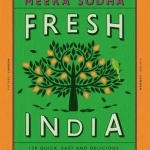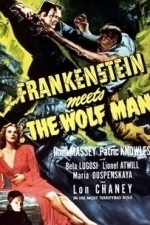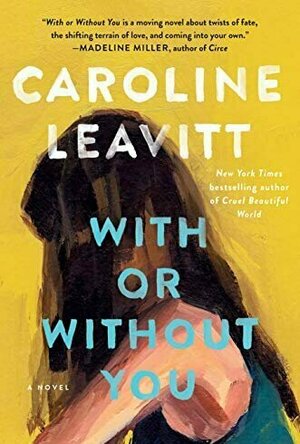Matthew Krueger (10051 KP) rated Frankenstein Meets the Wolf Man (1943) in Movies
Oct 15, 2020
The plot: Lawrence Stewart Talbot (Lon Chaney Jr.) is plagued by a physical oddity that turns him into a crazed werewolf after sundown. His desire to rid himself of this ailment leads him to the castle owned by mad scientist Dr. Frankenstein. Frankenstein, it turns out, is now dead, yet Talbot believes that the scientist's daughter, Baroness Elsa Frankenstein (Ilona Massey), can help him. However, his quest to right himself puts him on a collision course with Frankenstein's monster (Bela Lugosi).
This was the first of a series of "ensemble" monster films combining characters from several film series. This film, therefore, is both the fifth in the series of films based upon Mary Shelley's 1818 book Frankenstein; or, The Modern Prometheus, directly after The Ghost of Frankenstein, and a sequel to The Wolf Man.
As ultimately edited and released, Frankenstein Meets the Wolf Man is told in two almost equal parts. The opening scenes tell the story of Talbot's resurrection, killing spree, hospitalization, and escape across Europe. Much time is spent with a secondary policeman, Inspector Owen, and on scenes with a desperate Talbot hospitalized by Dr. Mannering. The discovery of the Monster and pursuit of Dr. Frankenstein's scientific notes do not begin until thirty-five minutes into the film. The second half introduces the Monster, Elsa, and the village of Vasaria and its inhabitants.
Immediately following his success in Dracula, Bela Lugosi had been the first choice to play the Monster in Universal's original Frankenstein film, but Lugosi famously turned down the nonspeaking, heavily made-up role: as conceived by the original director Robert Florey, the Monster was nothing more than a mindless killing machine and not suitable for Lugosi's rising stardom and career as a leading actor, and the original make-up for Lugosi's screen test was closely based on the doll-like clay robot in The Golem.
Eight years later, Lugosi joined the film as the Monster's twisted companion Ygor in Son of Frankenstein. He returned to the role in the sequel, The Ghost of Frankenstein, in which Ygor's brain is implanted into the Monster (now Chaney), causing the creature to take on Lugosi/Ygor's voice. After plans for Chaney to play both the Monster and the Wolf Man in the next film fell through for logistical reasons (Chaney demurred), the natural next step was for Lugosi, who turned 60 during the film's production, to take on the part that he once was slated to originate.
The original script — and indeed the film as originally filmed — had the Monster performing dialogue throughout the film, including references to the events of Ghost and indicating that the Monster is now blind (a side effect of the brain transplant as revealed at the end of the previous film, and the reason for his iconic stiff-armed "Frankenstein walk"). According to Siodmak, a studio screening audience reacted negatively to this, finding the idea of the Monster speaking with a Hungarian accent unintentionally funny (although the Monster spoke with Lugosi's voice at the end of Ghost, the audiences had been carefully prepared for it by the plot of the film). This has been generally accepted as the reason virtually all scenes in which Lugosi speaks were deleted (though two brief scenes remain in the film that show Lugosi's mouth moving without sound). All references to his being blind were also eliminated, rendering the Monster's groping gestures unmotivated for those unfamiliar with the ending of the previous film. Close-ups of Lugosi's eyes during the revitalization scene and his evil, knowing leer to Patric Knowles were supposed to indicate that his vision had been restored, but in the ultimate context of the film this means nothing. Consequently, Lugosi is onscreen literally for only a few minutes, leaving the Wolf Man as the film's primary focus.
Lugosi suffered exhaustion at some point during the filming, and his absence from the set, combined with his physical limitations at age 60, required the liberal use of stand-ins.
This would be the final Universal horror film in which the Monster played a major role; in the subsequent films The House of Frankenstein and House of Dracula, the Monster, played by Glenn Strange, is brought back to life only in the final scenes (in the 1948 Universal comedy Abbott and Costello Meet Frankenstein (the second and final film in which Lugosi plays Dracula), Strange has a larger role and the creature once again speaks, albeit with very limited dialogue, twice muttering, "Yes, Master."). It was also the last Universal horror film to feature an actual member of the Frankenstein family as a character.
A tribute to this meeting of two horror film legends happens near the beginning of the film Alien vs. Predator, when this film is seen playing on a television at the satellite receiving station. In the US version of the 1962 film King Kong vs. Godzilla (another pairing of prominent monsters), the music from the fight scene at the end of the film also plays during the final fight between Godzilla and Kong.
So the reason why this movie was a huge disappointments that it was universal first ensemble. A meet between two iconic monsters and boy did it disappointment. Their didnt meet until the last 5 minutes, no scratch that the last minute. Yes you read that right, the last minute their meet. Huge disappointment. It was also slow. I dont recordmend watching this one and skip it. The only reason im giving it a 5 is because of Lon Chaney Jr. and Bela Lugosi.

Fresh India: 130 Quick, Easy and Delicious Vegetarian Recipes for Every Day
Book
From the author of the Top Ten Bestseller Made in India Following on from her bestselling Made in...

Curating Biocultural Collections
Jan Salick, Katie Konchar and Mark Nesbitt
Book
Biocultural collections are plants and animals used by people, products made from them, and/or...
Rupert Thomas recommended Paradoxical Undressing in Books (curated)

El monstruo de colores
Book and Education
App
The new interactive story by Editorial Flamboyant based on the well-loved children’s book by Anna...

Preserved Diesels in the UK
Book
Today, most British Rail diesel locomotive types are represented in preservation, though some...

A Modern Way to Eat: Over 200 Satisfying, Everyday Vegetarian Recipes (That Will Make You Feel Amazing)
Book
'A simply brilliant book - modern, clever, beautiful and full of delicious recipes.' Jamie Oliver A...
The Man Who Created the Middle East: A Story of Empire, Conflict and the Sykes-Picot Agreement
Book
At the age of only 36, Sir Mark Sykes was signatory to the Sykes-Picot agreement, one of the most...

Vehicle Log Book GPS PRO
Business and Finance
App
Vehicle Log Book PRO is your ultimate vehicle travel TAX companion for business or private use -...
Kristy H (1252 KP) rated With or Without You in Books
Sep 17, 2020
What a beautiful and striking novel. I discovered Caroline Leavitt through the power of ARCs in 2016, falling in love with her work through Cruel Beautiful World. She gives us another book filled with compelling characters here. I so enjoyed reading a book with a different plot, especially knowing that the coma story was somewhat based on Leavitt's own life. She's a remarkable writer in so many ways.
With or Without You is incredibly well-written--almost poetic at times. It's told from both Simon and Stella's perspectives, including while Stella's in her coma, and some of those moments are quite profound and touching. Both Stella's realizations as she struggles to realize where she is, and Simon's, as he tries to grapple with the idea of his partner being ill, as well as the awareness that he may be losing his last chance at fame and fortune as his band moves on without him.
"It's a kind of blankness. She's been erased for a while and then redrawn. When she comes back, she always feels a little bit better..."
Even worse for both Simon and Stella is the fact that they fought shortly before she fell into the coma. What kind of relationship, each wonders, would they come back into should Stella awake? In this way, Leavitt gives a beautiful character study: an in-depth observation into a flawed relationship. It just happens to be a relationship where a woman enters and exits a coma. It's an amazing look into love, loyalty, and loss. The novel makes you think, drawing you into the characters. What would you do in Simon's situation, you think? Or Stella's?
"Mostly she thought of all the things that she herself wanted, and like Simon's dreams, they had an expiration date she couldn't ignore."
Overall, I quite enjoyed this novel. It's so well-done and such a different and intriguing look at two people trying to find happiness. I love Leavitt's way with words. 4 stars.



